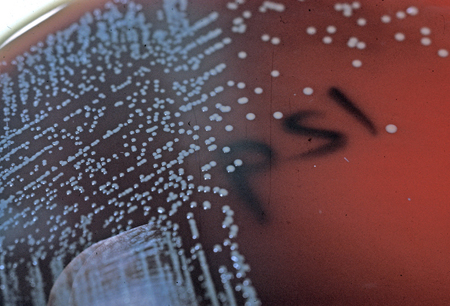Resumo
Definição
História e exame físico
Principais fatores diagnósticos
- presença de fatores de risco
- história de contato sexual com pessoa infectada
- febre ou calafrios
- sintomas constitucionais
- artralgia
- inchaço e sensibilidade nas articulações
- hepatomegalia e/ou esplenomegalia
Outros fatores diagnósticos
- náuseas, vômitos, dor abdominal, constipação, diarreia
- palidez
- linfadenopatia
- tosse seca
- sinais torácicos
- dor testicular
- rigidez de nuca
- paralisia do nervo craniano ou deficit focal do sistema nervoso central
- macicez à percussão, expansibilidade diminuída, crepitações
- olho vermelho
- rashes cutâneos
Fatores de risco
- ingestão de alimentos contaminados
- exposição a produtos animais infectados
- inalação de aerossóis infectados
- contato conjuntival com material infectado
- ocupação com potencial de exposição a espécies de Brucella
- viagem para uma área endêmica
- cortes ou abrasões na pele
- contato sexual com um indivíduo infectado
- neonatos ou lactentes nascidos de mães infectadas
- receptor de transplante de hemoderivados, órgão ou tecido
Investigações diagnósticas
Primeiras investigações a serem solicitadas
- hemocultura
- testes sorológicos
- Análise do líquido cefalorraquidiano (LCR)
- cultura do líquido cefalorraquidiano (LCR)
- análise do líquido sinovial
- cultura do líquido sinovial
- Hemograma completo
- testes da função hepática
- eletrólitos séricos
Investigações a serem consideradas
- cultura de medula óssea
- biópsia tecidual
- radiografias simples das articulações afetadas
- radiografia torácica
- cintilografia óssea
- tomografia computadorizada (TC) ou ressonância nuclear magnética (RNM) da coluna
- TC ou RNM do crânio
Novos exames
- reação em cadeia da polimerase (PCR) para detecção e diagnóstico de espécies de Brucella
- espectrometria de massa por tempo de voo com ionização/dessorção a laser assistida por matriz (MALDI-TOF)
Algoritmo de tratamento
doença não complicada
doença complicada
Colaboradores
Autores
Nicholas J. Beeching, MA, BM BCh, FRCP, FRACP, FFTM RCPS (Glasg), FESCMID, DCH, DTM&H
Consultant and Emeritus Professor of Tropical and Infectious Diseases
Royal Liverpool University Hospital
Liverpool School of Tropical Medicine
Liverpool
UK
Declarações
NJB is partially supported by the National Institute of Health Research Health Protection Unit in Emerging and Zoonotic Infections at the University of Liverpool and the UK Health Security Agency. Views expressed in this topic are those of the contributor and do not necessarily represent the official position of the National Health Service, the National Institute for Health Research, the Department of Health, or the UK Health Security Agency. NJB is an author of references cited in this topic.
Alessandro Gerada, MD, MRCP, FRCPath
Consultant in Clinical Microbiology
Liverpool Clinical Laboratories
Royal Liverpool University Hospital
Liverpool
UK
Declarações
AG is an author of several references cited in this topic.
Sherine Thomas, MBChB, MRCP, DTMH
Consultant in Infectious Diseases
Whipps Cross Hospital
London
UK
Declarações
ST declares that she has no competing interests.
Revisores
Mical Paul, MD
Infectious Diseases Consultant
Unit of Infectious Diseases
Rabin Medical Center
Beilinson Hospital
Petah-Tikva
Israel
Declarações
MP declares that she has no competing interests.
Edward J. Young, MD
Professor of Medicine
Section of Infectious Diseases
Department of Medicine
Baylor College of Medicine
Houston
TX
Declarações
EJY declares that he has no competing interests.
Créditos aos pareceristas
Os tópicos do BMJ Best Practice são constantemente atualizados, seguindo os desenvolvimentos das evidências e das diretrizes. Os pareceristas aqui listados revisaram o conteúdo pelo menos uma vez durante a história do tópico.
Declarações
As afiliações e declarações dos pareceristas referem--se ao momento da revisão.
Referências
Principais artigos
Centers for Disease Control and Prevention. Brucellosis reference guide: exposures, testing and prevention. Feb 2017 [internet publication].Texto completo
World Health Organization. Brucellosis in humans and animals. 2006 [internet publication].Texto completo
Yousefi-Nooraie R, Mortaz-Hejri S, Mehrani M, et al. Antibiotics for treating human brucellosis. Cochrane Database Syst Rev. 2012 Oct 17;10:CD007179.Texto completo Resumo
Artigos de referência
Uma lista completa das fontes referenciadas neste tópico está disponível para os usuários com acesso total ao BMJ Best Practice.

Diagnósticos diferenciais
- Tuberculose
- Malária
- Infecção tifoide
Mais Diagnósticos diferenciaisDiretrizes
- Brucella: laboratory and clinical services
- Clinical overview of brucellosis
Mais DiretrizesConectar-se ou assinar para acessar todo o BMJ Best Practice
O uso deste conteúdo está sujeito ao nosso aviso legal